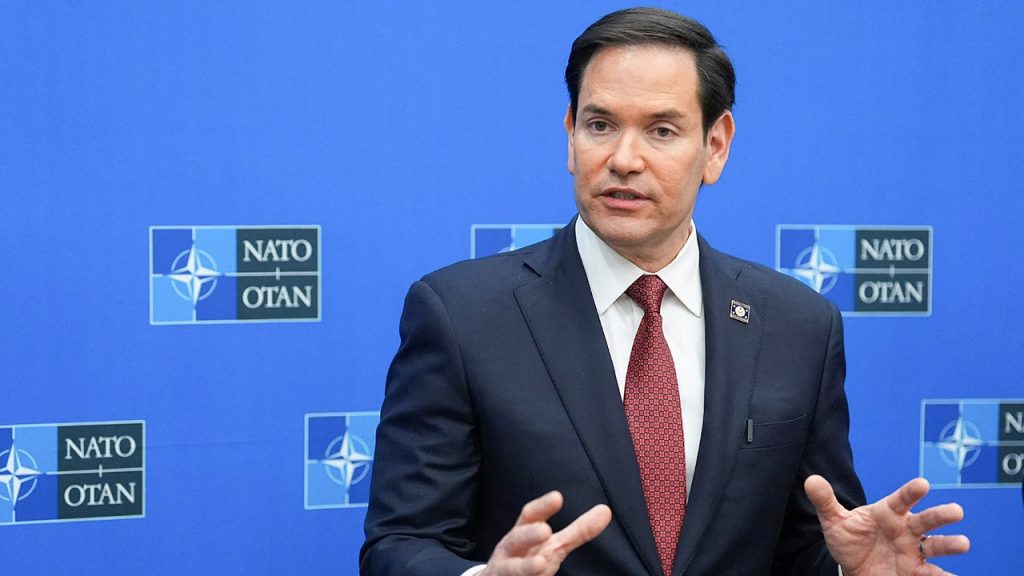A recent report by the Center for European Policy Analysis (CEPA) reveals that NATO is inadequately prepared for modern digital warfare, posing significant security risks to the alliance. The study highlights the urgent need for stronger leadership from the United States to bolster member nations’ military data systems, many of which rely on outdated cloud infrastructures. As nations build their separate cloud systems, the ongoing fragmentation jeopardizes intelligence sharing and rapid coordination in crises, leaving NATO vulnerable to cyber threats.
| Article Subheadings |
|---|
| 1) Understanding NATO’s Digital Vulnerabilities |
| 2) The Fragmented Cloud Systems Across Member Nations |
| 3) Political Dynamics Influencing NATO’s Cybersecurity Challenges |
| 4) Proposals for Enhanced Data Sharing |
| 5) Future Steps for NATO’s Leadership in Cyber Defense |
Understanding NATO’s Digital Vulnerabilities
The CEPA report emphasizes that NATO is currently at a critical juncture regarding its cyber defense capabilities. The alliance, consisting of 31 member countries, has been increasingly vocal about the necessity of secure and integrated cloud infrastructures for military operations. However, a significant gap exists between these declarations and the reality on the ground. NATO members are still heavily reliant on local servers for critical military data, which renders them vulnerable to cyberattacks. The report points to the necessity of treating data as a “currency of warfare,” underscoring its importance in the modern battlefield where information can dictate strategic decisions.
The Fragmented Cloud Systems Across Member Nations
As of now, many NATO countries are developing independent national cloud solutions, which further contributes to the disjointed nature of the alliance’s cybersecurity framework. For instance, nations like France, Germany, and Italy are partnering with different tech firms—Thales, Arvato, and Leonardo, respectively—to establish their sovereign defense cloud infrastructures. Meanwhile, the United States is pursuing its own strategy involving major corporations like Amazon, Google, Microsoft, and Oracle to create a reliable cloud for the Department of Defense. However, this diverging approach leads to compatibility issues among member states, making joint missions and intelligence sharing increasingly complicated during crises.
Political Dynamics Influencing NATO’s Cybersecurity Challenges
Political tensions and leadership dynamics further complicate NATO’s strides toward improved cybersecurity. The current administration in the United States has re-emphasized the necessity for NATO members to adhere to defense spending commitments, with proposed increases from the existing 2% benchmark. This push has created friction among nations, especially as they grapple with internal political challenges. The rapport between the U.S. and its European partners is crucial for NATO’s overall effectiveness in addressing cybersecurity issues. Assertions from U.S. Secretary of State, who has reassured European partners about the U.S.’s commitment to NATO, illustrate the government’s attempts to mitigate fears about disengagement from the alliance.
Proposals for Enhanced Data Sharing
The CEPA report advocates for a uniform approach to secure data sharing amongst NATO members, pointing to the practice implemented by Estonia, which employs a “data embassy” to protect its governmental data even in the event of cyberattacks. Such a strategic model should be adopted across the alliance, ensuring that member states’ data remains safeguarded during crises. By establishing shared cloud capabilities, NATO can streamline intelligence sharing, bolstering its response effectiveness. The report notes that despite 22 NATO countries committing to develop these shared capabilities, progress has been sluggish, often hindered by bureaucratic processes.
Future Steps for NATO’s Leadership in Cyber Defense
Looking ahead, the CEPA report predicts that the United States is ideally placed to spearhead the efforts required for NATO’s digital evolution. The leadership efforts by both President Trump and Secretary of State Rubio have been pivotal in pressing for enhanced cybersecurity strategies. Their initiative to position the alliance ahead of adversaries in cybersecurity is critical not only to thwart potential threats but also to solidify NATO’s stature as a credible security alliance in a rapidly evolving landscape.
| No. | Key Points |
|---|---|
| 1 | NATO’s current reliance on outdated systems puts member nations at risk of cyberattacks. |
| 2 | Fragmented cloud systems among members hinder intelligence sharing and cooperation. |
| 3 | Political tensions complicate NATO’s collective cybersecurity efforts. |
| 4 | Implementing a uniform digital strategy is critical for enhanced data resilience. |
| 5 | U.S. leadership is essential as NATO evolves its cybersecurity framework. |
Summary
In conclusion, the CEPA report serves as a clarion call for NATO to accelerate its digital modernization efforts, particularly in the realm of cybersecurity. With an urgent need for cohesive and resilient data-sharing capabilities among member nations, effective leadership, especially from the United States, will be integral to safeguarding the alliance against future threats. NATO must not only enhance its cloud infrastructures but also ensure that they are compatible and secure to respond to the evolving landscape of digital warfare.
Frequently Asked Questions
Question: Why is NATO focusing on digital warfare?
NATO is concentrating on digital warfare due to the increasing reliance on technology in defense strategies, making data an essential asset. Cyber threats are growing in sophistication, necessitating a robust response to safeguard member nations.
Question: What challenges are NATO countries facing in modernizing their military data systems?
NATO countries are facing challenges such as political tensions, lack of interoperability between national cloud systems, and slow bureaucratic progress in establishing shared capabilities.
Question: How can NATO improve its data sharing capabilities?
NATO can enhance its data sharing by adopting a unified cloud infrastructure, similar to Estonia’s data embassy model, and fostering inter-member collaboration focused on cyber resilience.


